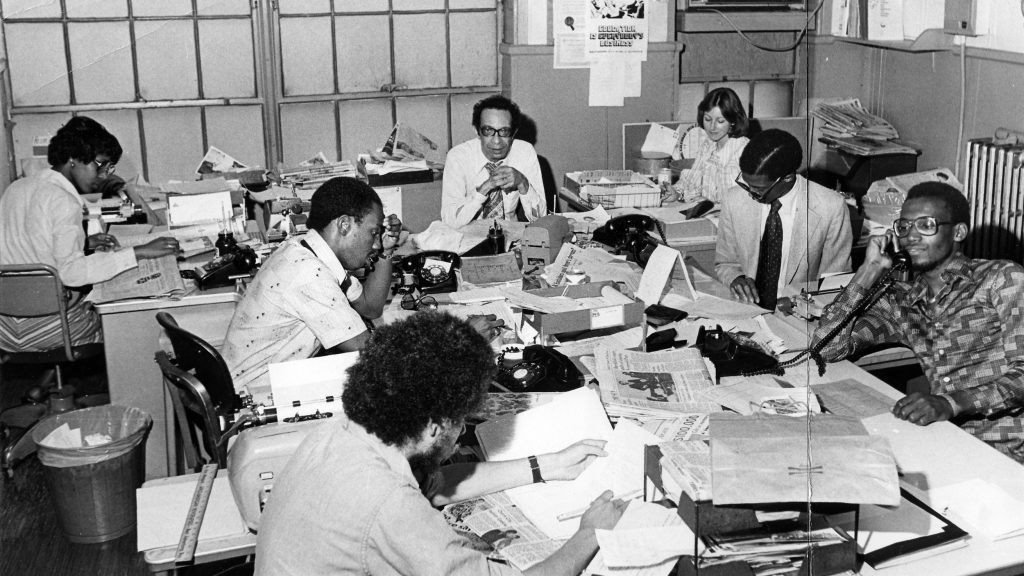[ad_1]

By Sean Yoes
AFRO Baltimore Editor
[email protected]
“On next Tuesday morning at 12 o’clock, in old Bethel church, a grand mass meeting of extra-ordinary and far-reaching importance will be held,” read an editorial in the Afro-American Ledger, on January 23, 1904, titled, “Shall We Surrender the Franchise?”
“To declare the mind of Afro-American citizens with respect to the pending proposition to disfranchise them by the present Legislature of Maryland, and to effect a permanent organization whereby we may be enabled to fight such a measure to the bitter end.”
The Afro-American Ledger, later known as the AFRO-American, or simply the AFRO, had only been in existence for 12 years at the time of this editorial. But, the Black newspaper had directly inserted its institutional will into the most consequential issue confronting the Black community in Maryland, the threat of disenfranchisement of the community it was a part of.

January 1904, was the start of the 301st session of the Maryland General Assembly and it marked the first of three major legislative efforts between 1904 and 1911, to disenfranchise the Black vote in Maryland.
The legislature introduced the Poe Amendment (1904-1905), The Strauss Amendment (1908-1909), and the Diggs Amendment (1910-1911).
“In each case, Black Baltimoreans organized grassroots movements to help defeat the amendments. Their efforts not only stopped the spread of Jim Crow disfranchisement but also preserved democracy in the face of segregationists’ attempts to make Maryland a one-party state,” according to Dennis Patrick Halpin, in his book, A Brotherhood of Liberty: Black Reconstruction and Its Legacies in Baltimore, 1865-1920.
And the Black Press in Baltimore, embodied by the Afro-American Ledger (later known simply as the AFRO-American, or AFRO), still in its incipient stages (the newspaper was officially founded in 1892), played an integral role in defeating the efforts at Black disfranchisement. In fact, the early 1900’s marked the beginning of the most expansive and influential era of the burgeoning Black Press.
In Baltimore, perhaps the vanguard American city in the young civil rights movement, the AFRO helped lead the way. For example, in 1905, the formation of the Niagara Movement, which led to the birth of the National Association for the Advancement of Colored People was covered extensively by the AFRO and some of the other leading newspapers of the Black Press: The Pittsburgh Courier, the Chicago Defender and the Philadelphia Tribune.
It was the advocacy journalism of the Black Press, along with the efforts of the civil rights community, the Black church and other groups that pushed the United States government to address the heinous epidemic of lynchings primarily, but not exclusively in the South in the early 20th century. Although the Dyer Anti-Lynching Bill of 1922, ultimately died in the Senate by the hands of Southern Democrats, who fillibustered the legislation, it was years of advocacy by the Black Press that pushed the Congress to craft the anti-lynching measure.
During the period prior to the Civil War and just after the Reconstruction Era, there had been 31 Black newspapers established in Baltimore between 1856 and 1900. These publications provided the most important platforms at the time for disseminating information and reporting on injustice in Baltimore and throughout the nation. The advocacy journalism that was practiced in newspapers like the AFRO, the Chicago Defender, the Pittsburgh Courier, the Philadelphia Tribune and others in many cases helped rally the Black community against injustice.
The AFRO, established by John H. Murphy Sr., a veteran of the U.S. Colored Troops that fought in the Civil War, was the union of his church newsletter, The Sunday School Helper, with two other publications: The Ledger, founded in 1882 by Rev. George Freeman Bragg of St. James Episcopal Church and the Afro-American, published by Rev. William M. Alexander, pastor of Sharon Baptist Church, one of the founding members of the United Mutual Brotherhood of Liberty.
The newspaper from the beginning was rooted in the Black struggle for freedom in Baltimore and across the country.
“Many of the best speakers in the city will be present, and it will be a red-hot, enthusiastic meeting,” read the editorial towards the end. “In the language of a distinguished Virginian, we say: “Why stand we here idle? What is that gentlemen wish? What would they have? Is life so dear, or peace so sweet, as to be purchased at the price of chains and slavery? Forbid it Almighty God! I know not course others may take; but as for me, give me liberty or give me death!””
[ad_2]
Source link
